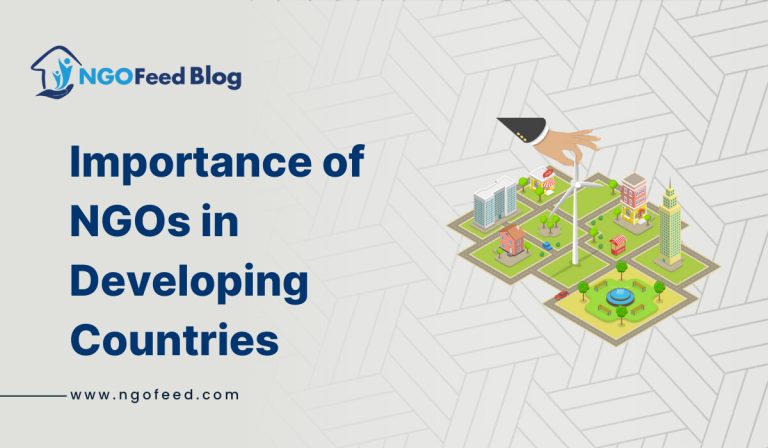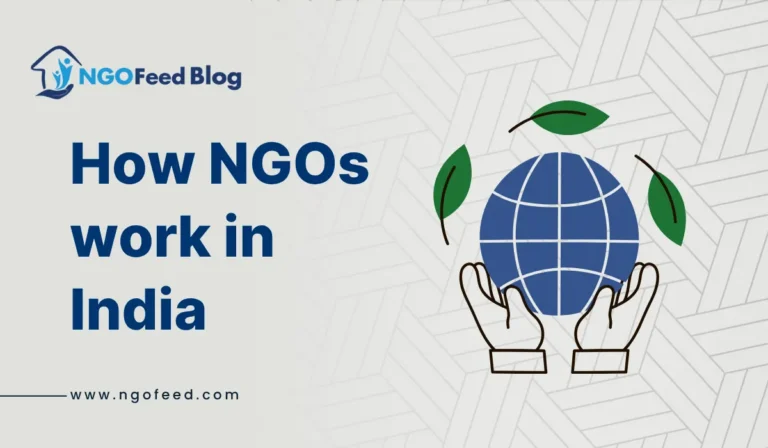Role of UNIDO in India: Think about an India where every micro, small, and medium enterprise (MSME) runs on clean energy; women in the rural landscape operate world-class manufacturing units; sustainable industrialisation grows, and not just profits, but people. This is not merely a wish for the future; it is the dream of the United Nations Industrial Development Organisation (UNIDO).
With climate change, joblessness, and widening inequality, the world is at a crossroads, and this is UNIDO’s sweet spot—promoting industrialisation that is productive but also inclusive and sustainable. With its vast untapped resources, India has been a long-standing partner to UNIDO, and we are working towards this collective vision.
The UNIDO portfolio changes lives by delivering a whole suite of interventions, from greening India’s industries to enhancing youth skill development and making MSMEs more efficient and competitive in the market. However, when international goals become local action, true magic can happen, and that’s where NGOs come in.
Also Read: Role of UNESCAP in India
For NGOs aligned towards rural development, gender equality and environmental sustainability, UNIDO is a partner beyond telling you the policy; it’s a partner in scale, in bringing innovations to communities, and to ensure no one is left behind on India’s industrialisation journey.
This article examines how UNIDO and the NGOs can work together to usher in a new era of people-centred industrial growth in India that provides employment, safeguards the planet, and establishes pathways to dignity and opportunity for everyone.
Table of Contents
UNIDO at a Glance: Mission, Vision, and Global Impact
The United Nations Industrial Development Organisation (UNIDO) is a specialised agency of the United Nations, which was formally started in 1966, and the task and mandate of the organisation are to contribute towards inclusive and sustainable industrial development (ISID). UNIDO has its headquarters in Vienna and it has a global network of regional offices and technical centres, and project operations in developing and emerging economies.
The mission of the organisation revolves around the understanding that industrial development needs to be sustainable to the environment, financially viable, and all-inclusive. Its vision is consistent with the wider objectives of the United Nations, especially that of the 2030 Agenda for Sustainable Development, especially Sustainable Development Goal 9 (Industry, Innovation, and Infrastructure).
Also Read: Role of UNWTO in Tourism
The work of UNIDO is organised around three strategic thematic priorities:
- Generating shared prosperity- by creating secondary jobs, empowering micro, small and medium-sized enterprises (MSMEs), skills and gender-sensitive economic engagement.
- Promoting economic competitiveness by encouraging innovation, transfer of technology, and development of the value chain, especially in manufacturing and agribusiness industries.
- Environmental protection: through promotion of clean technologies, energy-efficient techniques, sustainable resource production and shifting into an economy of cycles.
- UNIDO has helped in reducing industrial pollution, promoting green technologies as well as enhancing the competitiveness of local industries in low- and middle-income countries all around the world. It assists national governments in developing policies, institutional capacity-building, and the realisation of industry-driven climate action plans.
UNIDO’s approach provides an opportunity for meaningful work in the framework of non-governmental organisations (NGOs) and civil society. Through engaging communities through community-based organisations in project implementation, UNIDO also supports participatory development, leaving no one behind in terms of positive and inclusive social impacts, and environmental robustness through industrial development.
India and UNIDO: A Strategic and Sustainable Partnership
India pursued a healthy working relationship with the United Nations Industrial Development Organisation (UNIDO) based on a long-term active cooperation since it joined the organisation on the day it was established. Over the years, this partnership has expanded and is today a strategic partnership working towards promoting sustainable industrial development, increasing the competitiveness of micro, small and mining enterprises (MSMEs) and embedding the environmental sustainable practice on the development path of India.
The activities of UNIDO in India are synchronised with national development and priorities, including the initiative Make in India, Startup India, Skill India, commitment to the Paris agreement and the Sustainable Development Goals (SDGs). It has assisted (both technically and in the formulation of policies) a large number of Indian ministries and departments, such as the Ministry of Micro, Small and Medium Enterprises (MoMSME), the Ministry of Environment, Forest and Climate Change (MoEFCC), and NITI Aayog.
Also Read: Role of UNHRC in India
The most important spheres of collaboration are:
- Transfer and innovation of technology to clean and efficient production, particularly in the MSMEs.
- In the promotion of energy efficiency and renewable energy, e.g. the Global Environment Facility (GEF)-funded projects.
- Industrial policy advisory services are intended to improve the economics of a region, infrastructure planning and industrialisation on the basis of clusters.
- Skills development and capacity-building in inclusive employment and especially for the youth and women.
The regional and thematic projects of UNIDO in India have covered an extensive span of industries and areas and have included textile, leather, automotive, food processing and waste management sectors. In both spheres, sustainability, competitiveness and inclusivity have been the focus.
Notably, this collaboration is also with the non-governmental organisations (NGOs) and civil society stakeholders who sometimes act as the implementing partners/local facilitators of an intervention sponsored by the UNIDO. This multi-stakeholder model is a way of increasing the outreach of a project and guaranteeing that the industrial development activities integrate into the social and natural environment of local communities.
Also Read: Role of WFP in India
Empowering Communities: The Role of NGOs in Advancing UNIDO’s Goals
The non-governmental organisations (NGOs) play an important mediatory role in putting the goals of the United Nations Industrial Development Organisation (UNIDO) on the ground. Though the main stakeholders with which UNIDO works are national governments and institutional stakeholders, the focus on inclusive and sustainable industrial development (ISID) compels the approach of involving community-based actors who have contextual insights and strong local involvement. In this context, NGOs serve as key intermediaries between the transference of global structures of development at the local and participatory level of activity.
In India, where the modernisation of industries is affected by complex tasks on social, economic, and environmental development, NGOs have played a major role in the design, implementation, and monitoring of the initiatives supported by UNIDO. These contributions are in various areas:
Also Read: Role of UNAIDS in India
- The stimulation of entrepreneurship in women, young people and marginalised groups, particularly the rural and semi-urban minority.
- Capacity building and skills training that reflects national priorities, Skill India and Livelihood Missions.
- Creation of awareness on matters such as energy efficiency, sustainable resource exploitation and environmental compliance.
- Community involvement in facilitating their consent and participation in industrial development and infrastructure projects.
NGOs are usually there as an interface between institutional spaces and informal spheres, especially in regions where micro and small firms are the mainstay of local economies. Their grassroots networks facilitate the passing over of the best practices, capacity building of the stakeholders, and social acceptability of new technologies or industrial intervention introduced by means of the UNIDO projects.
Also Read: Role of UNODC in India
Also, NGOs have a rights-oriented approach as opposed to the developmental orientation of UNIDO. Their participation makes sure that industrial development is environmentally responsible and economically viable, which is not only socially just but also equitable and inclusive. By so doing, the NGOs contribute to a greater UN mandate of leaving no one behind.
Towards Inclusive Industrial Growth: Challenges, Opportunities, and the Road Ahead
India’s challenge of industrial development has promise and complexity. While India advances to the next level of capability, creating jobs, and improving tech-competitiveness in manufacturing, the challenge of achieving industrial growth and a dynamic sector that is inclusive, sustainable and can deliver economic growth remains at the forefront of policies and programs. The India-UNIDO partnership provides pathways to facing India’s challenges but requires collective action across many sectors, including those of civil society organisations (CSOs).
Also Read: Role of UNEP in the Environment
One of the significant issues is uneven industrial growth with rural areas, informal sector workers and marginalised social groups experiencing little inclusion. Important considerations or fundamentals to achieving balance in the challenge are to understand the impacts of environmental issues, increased resource inefficiencies and increased skills gaps. UNIDO provides support for approaches to address these fundamentals through cleaner production technologies, circular economy and various policy initiatives; however, local solutions must be recognised and implementation is based on local capacities.
This provides opportunities. India has a young population, a vibrant micro, small and medium enterprise (MSME) sector, and increasing commitments to improve sustainability provide a fertile context for innovation. UNIDO’s programs in green manufacturing, energy efficiency and enterprise will be important vehicles to support India’s initiatives to a low-carbon and socially equitable industry and economy.
As we move forward, an ideal approach would be to emphasise community-led models of industrialisation via NGOs. NGOs can take a more cross-cutting approach, as they can work to create an enabling environment for inclusive policies, promote local entrepreneurship, and work with vulnerable groups to benefit from industrial change while also promoting partnerships between public-private-civil society to build transparency, accountability and long-lasting impact.
Also Read: Role of ICARDA in India
In conclusion, an ideal approach to creating inclusive industrial development in India is to leverage global knowledge, national desire, and local action. The India–UNIDO–NGO
Relationships can go a long way in creating an industrial ecosystem that promotes economic growth, social justice, and environmental good.









